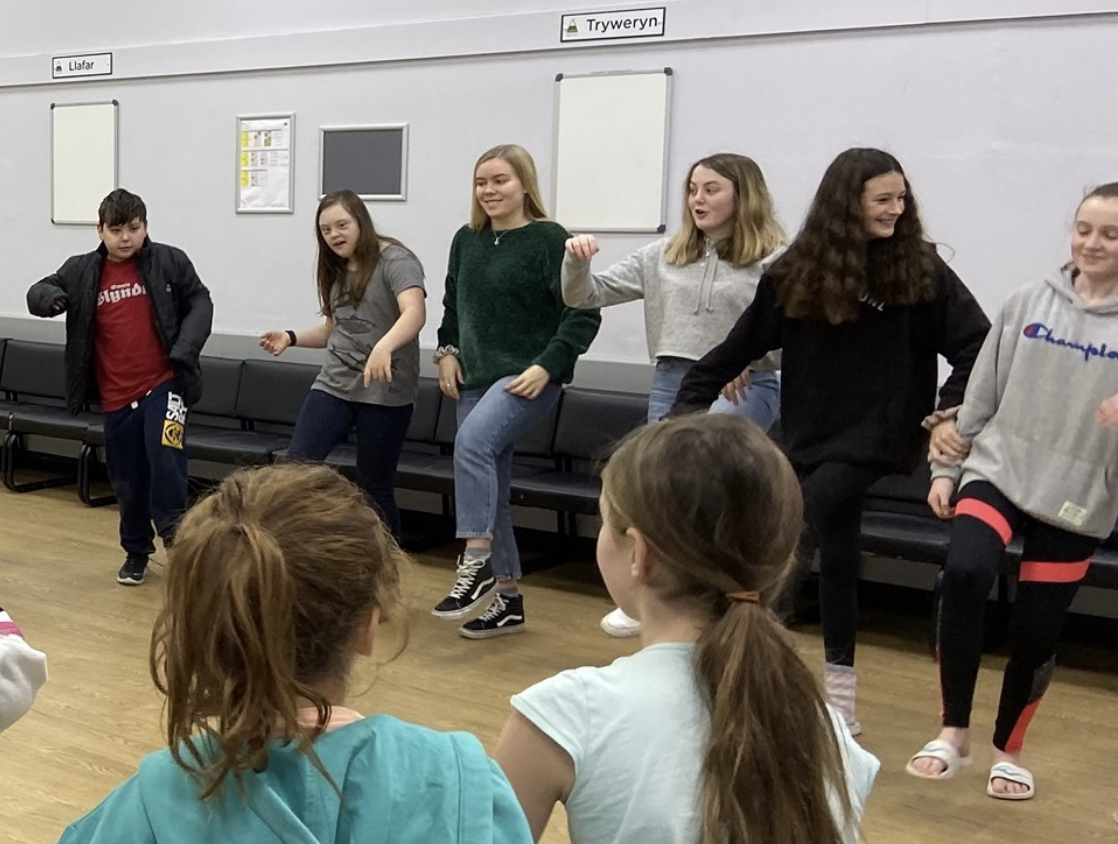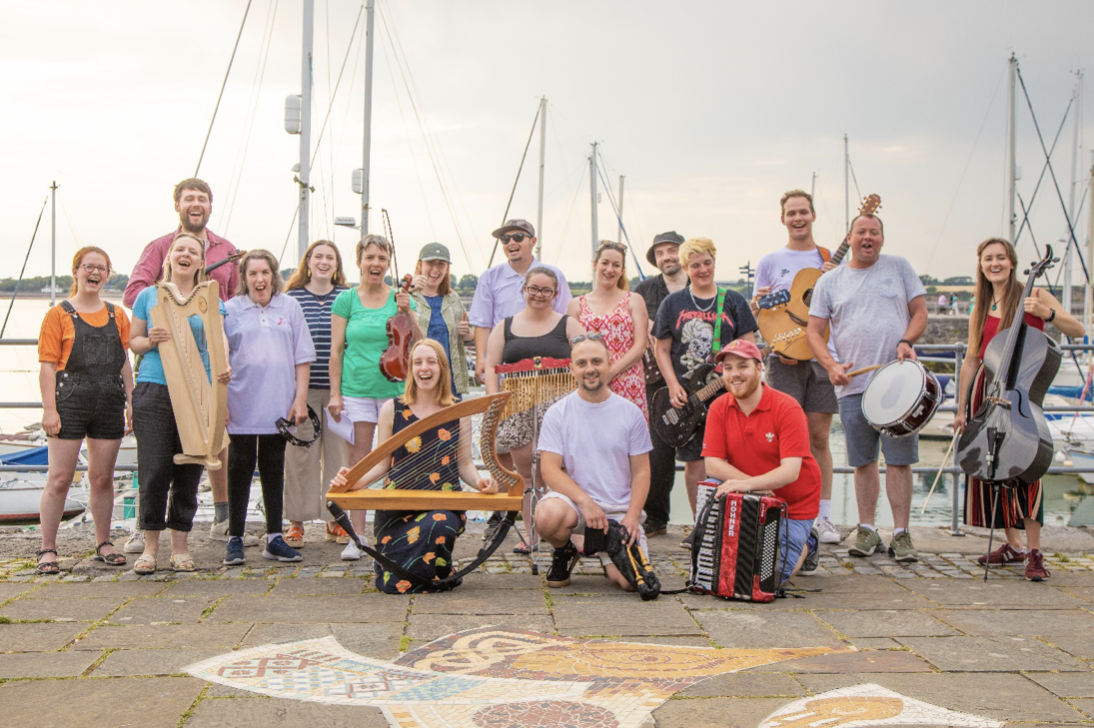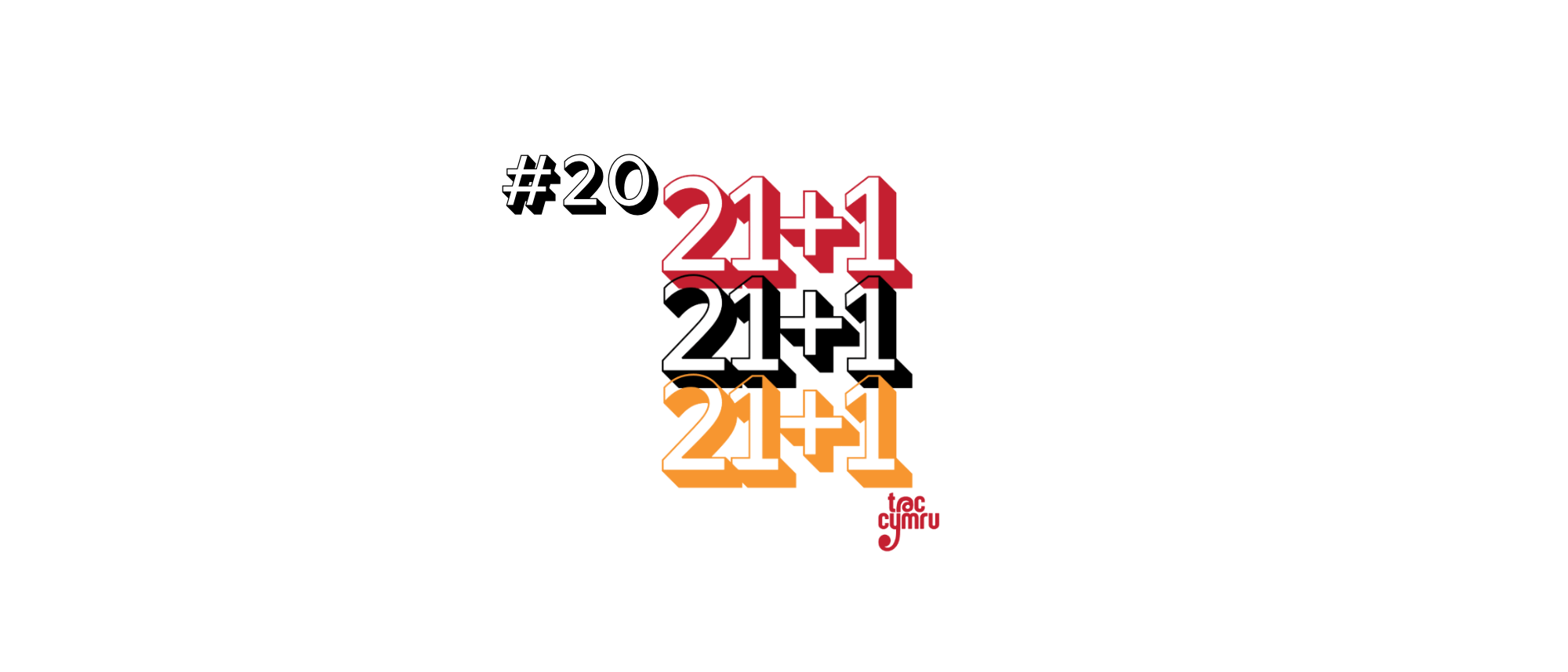Trac Cymru is aiming to ensure that the Welsh folk traditions are felt as the beating heart of the nation and this means that we are keen to include everyone in music-making and learning, regardless of their individual abilities or any disabilities.
In 2019, we were delighted to support the young musician Ida Beckmann, who has Down’s Syndrome, to join our residential Gwerin Iau course at the Urdd Centre in Glan-llyn. Ida’s mother, Liane Beckmann, explained that her daughter, who is a keen clarinet player, had been the one who asked her family to find her a club where she could play music and the Gwerin lau course was the only class across Wales that was available for them:
“Music has always played a huge part in my daughter’s life. Generally, my family is interested in Welsh folk music. The beauty of music is in its simplicity. It can automatically connect to the brain. Music can be powerful and highly useful for all children and adults. Gwerin lau has been an amazing time and great experience for my child. Ida absolutely loved it.
“I think music is helpful to reawaken memories and can increase enjoyment of life for people who have short term memories as such. Music is so important to my daughter and to many people with Down’s Syndrome – learning to play an instrument is well known to be good for a person’s wellbeing, mental health, as well as teamwork, self-discipline, and even mathematical skills. Making music is one of life’s blessings.”
One of the Gwerin Iau course organisers was Elisa Morris, who has a long-standing relationship with Trac Cymru including being a member of Avanc, the National Youth Folk Ensemble Of Wales, and she recalls helping to ensure that the accommodation and sessions were fully accessible and tailored to Ida’s individual needs so that she could relax and try out all out all the different sessions on offer: “It was about Ida trying a different style of music because she had already been playing clarinet in some semi-classical forms and wanted a different musical experience, together with the residential experience. That mixture, and also being able to do some of the clog dancing as well, was a different kind of stimulation with new things that she could try out.”
Ida herself talks fondly about the experience in her own words: “I can remember going there. I liked it very much. Yes please, I love to go there. I like playing my clarinet. Clocsio with the tutor was great fun. I remember the colour of the clogs.”
 Ida Beckmann (second from left) at Gwerin Iau in 2019
Ida Beckmann (second from left) at Gwerin Iau in 2019
Elisa feels that one of the most satisfying aspects of the experience was seeing the ease with which Ida integrated amongst all the other musicians: “It was really lush to see other members making Ida feel welcome by becoming friends – I think that was a big thing because people were making the effort and talking to her and making her feel included.”
Ida herself agrees with this, as her mother reported to us: “Ida says the best memory was when a girl asked her, ‘Please can I sit next to you?’, in the morning at the breakfast table. Ida was on cloud nine! That was the first time someone of the same age had asked her directly.”
This integration carried on all the way into the showcase performance that the participating young musicians played at the end of the programme, as Elisa Morris notes: “Her peers were really pleased to have her in the final show because she’d been such an integral part of the course. Being able to show that folk music is really accessible, and it can be for any age and ability, and any neurodiversity as well, is absolutely a key thing.”
Fast-forwarding to 2022, in the summer of this year Trac Cymru was pleased to foster another neurodiverse musical exchange, when several members of Avanc took the opportunity to go and play with ‘Canfod y Gan’ – a group for musicians with and without learning disabilities that was established by Canolfan Gerdd William Mathias in partnership with Gwynedd’s Learning Disabilities Team and funded by the Spirit of 2012’s Music Challenge Fund. Einir Llwyd Roberts, the director of the music centre, said, “Canfod y Gan participants really enjoyed a visit by Avanc musicians to one of their Summer sessions. It was a wonderful opportunity to share with and learn from each other. Canfod y Gan members were introduced to new Welsh folk tunes by Avanc, and Avanc were introduced to some of Canfod y Gan’s original songs. There was plenty of improvising and a real creative buzz in the room.”

Members of Avanc and Canfod y Gan came together for a musical collaboration in the summer of 2022
Elisa Morris was one of the Avanc musicians who took part in the collaboration and she reflected on the qualities that folk music has to support inclusion in music-making: “In folk music playing by ear and trying to understand the music in a much more open and accessible way means that as an artform it’s as not as strict, and there’s a lot more exploration and also adapting to the abilities of the person who is playing as well. In the past, music wouldn’t have been written down in the same way and it was much more social music-making, which I think is key to hand down so it’s not turned into something that’s only available to a certain group of people.
“At Canfod y Gan you could see how important that was to the participants who were coming from all over, including people living in rural areas, and the social element was the strongest bit because they had that familiarity with the people they were making music with, and you could tell they were having so much fun coming together and just playing. Even with us in Avanc, everyone feels that the social element is such an important part of music making – the trust you feel as a group as well.
“It also made us more aware of there needing to be more done to make music more accessible, just seeing who is out on stages – even by gender split, even by race and other characteristics – there’s still a great deal that needs to be done to make music-making, and also audience consumption of it, more accessible. Because folk music is the music of the people then it has to be all people – we have to think about who we want to have this music and to benefit from the wellbeing, and also that feeling of connection to history and the elements of the music making that are so key from the past and into the present.”
Trac Cymru has been supporting people to explore Welsh folk music for 21+1 years and we are planning to lead some bold new inclusion projects to help increase the diversity of participants in the music sector in Wales. Please support us by sharing these stories with your friends and colleagues, and join us in posting your own happy memories about Welsh folk music on social media #TRAC21, and you can help us fund our work by making a donation today.





